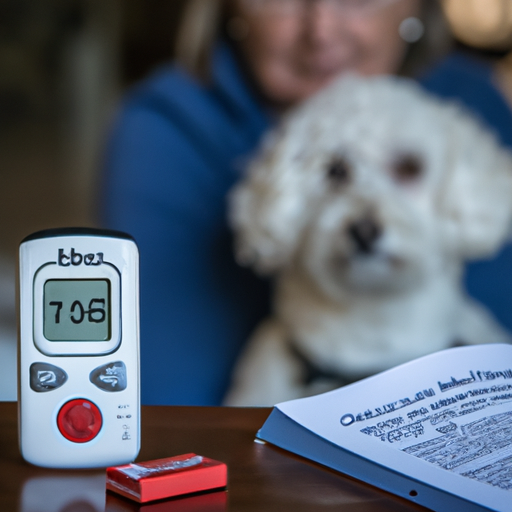Introduction
You may have heard of diabetes affecting humans but did you know that this condition can extend to your four-legged friends too? Yes, that’s right. Just like humans, your beloved pet can also become a victim of diabetes. The purpose of this guide is to help you, as a caregiver, understand the signs, causes, treatments, and prevention of diabetes in dogs.
Understanding What Diabetes Is
Diabetes in dogs is a complex disease caused by either a lack of the hormone insulin or an inadequate response to insulin. Similar to humans, dogs have two types of diabetes:
- Diabetes Mellitus
- Diabetes Insipidus
The most common type, Diabetes Mellitus, is categorized further into two:
- Type 1: This is when the body does not produce enough insulin.
- Type 2: This is when the body fails to use insulin properly.
Recognizing the Symptoms
Recognizing the symptoms of diabetes in your dog is the first step towards getting them the help they need. Here are some signs you should look out for:
- Excessive thirst
- Increased urination
- Weight loss despite normal or increased eating habits
- Cloudy eyes
- Chronic or recurring infections
Causes and Risk Factors
Dogs of any age can develop diabetes, but it’s more prevalent in middle-aged to older dogs. There are several factors that can contribute to this disease:
- Obesity: Just like in humans, overweight dogs are at a higher risk.
- Pancreatitis: Chronic inflammation of the pancreas can lead to diabetes.
- Steroid medications: These can cause diabetes when used long-term.
- Genetics: Some breeds are more prone to diabetes than others.
| Breeds More Prone to Diabetes |
|---|
| Miniature Poodles |
| Dachshunds |
| Beagles |
| Labrador Retrievers |
Diagnosis and Treatment
If you suspect your dog might have diabetes, it’s essential to get them to a vet as soon as possible. The vet will likely perform a series of tests including blood and urine tests to confirm the diagnosis.
The treatment plan for a diabetic dog often includes:
- Insulin injections
- A balanced diet
- Regular exercise regimen
- Regular check-ups
Remember, the aim is to keep your dog’s blood sugar levels as stable as possible.
Prevention
While there’s no surefire way to prevent diabetes, there are steps you can take to reduce your dog’s risk:
- Maintain a healthy weight for your dog
- Provide regular exercise
- Avoid steroids unless absolutely necessary
- Regular vet check-ups
Caring for a Diabetic Dog
Caring for a diabetic dog requires commitment and attention. Here are some tips to help you on this journey:
- Educate yourself about the disease
- Monitor your dog’s eating habits
- Administer insulin as advised by the vet
- Monitor blood glucose levels regularly
FAQs
Can I prevent my dog from getting diabetes?
While there’s no guaranteed way to prevent diabetes, maintaining a healthy weight and regular exercise can significantly reduce the risk.
How is diabetes diagnosed in dogs?
Diagnosis is usually based on symptoms, physical examination, and laboratory tests such as blood and urine tests.
Can a diabetic dog live a normal life?
Yes, with proper management, a diabetic dog can lead a happy and active life.
Conclusion
Yes, dogs can get diabetes and it can be a daunting diagnosis for any caregiver. However, with proper management and care, your furry friend can still enjoy a good quality of life. Always watch for signs and consult with your vet if you notice any changes in your dog’s health.



